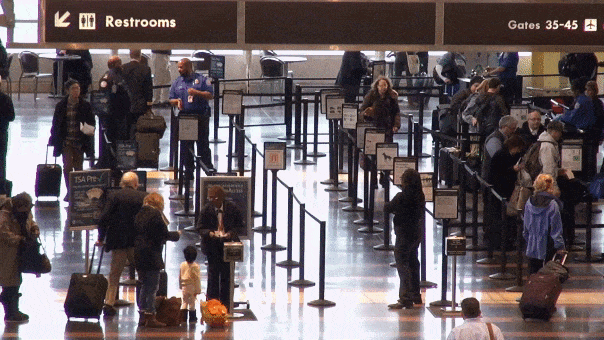Airlines in US cancel, reduce flights in wake of COVID-19 outbreak
Association of Flight Attendants president Sara Nelson joins ‘America’s News Headquarters’ to discuss the economic impact of the coronavirus on airline staff in the U.S.
Get all the latest news on coronavirus and more delivered daily to your inbox. Sign up here.
Major U.S. airlines are drafting plans for a potential voluntary shutdown of virtually all passenger flights across the U.S., according to industry and federal officials, as government agencies also consider ordering such a move and the nation’s air-traffic control system continues to be ravaged by the coronavirus contagion.
No final decisions have been made by the carriers or the White House, these officials said. As airlines struggle to keep aircraft flying with minimal passengers, various options are under consideration, these people said.
But amid the quickly spreading pandemic and mandatory stay-at-home orders covering some 80 million U.S. residents, airline executives, pilot-union leaders and federal transportation officials said they increasingly view as inevitable further sharp reductions from already-decimated schedules in passenger flights.
SCHUMER SAYS HE EXPECTS VOTE ON STIMULUS
U.S. airlines have already eliminated the vast majority of international flying and have announced plans to cut back domestic flying by as much as 40%. Travelers are staying home at even greater rates. The Transportation Security Administration reported that passenger flow at its checkpoints was down more than 80% Sunday from the same day a year earlier.
On Monday, thousands of flights were canceled, in some cases because planes weren’t full enough to justify the trip, with passengers numbering in the single digits. Some planes that did take off have been emptier than ever before. For example, a flight between New York’s LaGuardia Airport and Washington DC had just three passengers. American Airlines Group Inc. and United Airlines Holdings Inc. canceled over 40% of scheduled flights Monday, according to Flightaware.com, a flight-tracking site. Some airline officials expect planes to be even emptier as the week goes on.
Officials at Airlines for America, the leading trade association representing domestic carriers, didn’t immediately respond for comment.










































